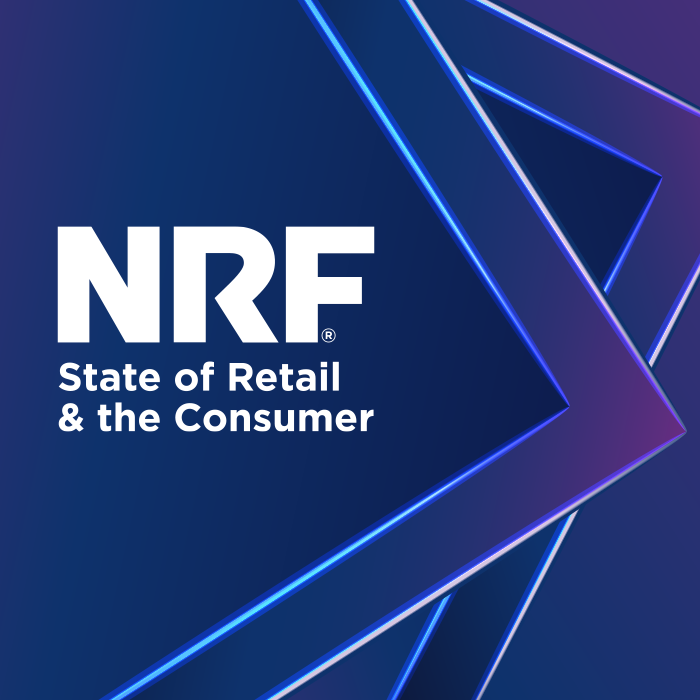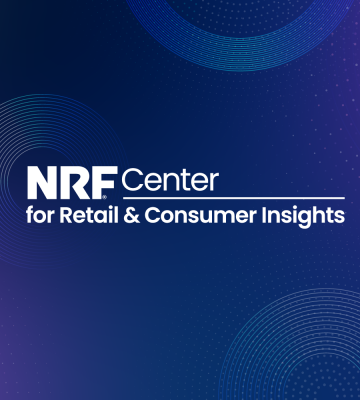Solving circularity: Highlights from NRF’s Reverse Logistics Summit in Amsterdam
)
From left: Reverse Logistics Association's Tony Sciarrotta speaks with Sofie Schop of WRAP Europe and Tjaco Twigt of European Recycling Platform Netherlands at the 20th annual Reverse Logistics Summit.
NRF Center for Retail Sustainability
Check out NRF's hub designed to support retailers’ efforts to generate economic value while creating net positive environmental, social and community benefits.
More than 100 executives from across the retail, reverse logistics and circularity industries gathered in Amsterdam, June 24 – 26, for the 20th annual Reverse Logistics Summit. Originally launched by the Reverse Logistics Association, which NRF acquired in late 2023, the summit provides an opportunity for global leaders to collaborate, share best practices and prepare for a future that is increasingly focused on circular business practices.
Everyone at the event shares a common vision focused around practical and profitable practices that allow retailers, manufacturers and consumers to reduce waste, lower costs and keep products and materials circulating throughout the economy for as long as possible. These themes and the conversations will continue at an upcoming, invitation-only, Reverse Logistics Leadership Summit in Dallas, September 3 – 4, and at the NRF Rev Conference taking place January 11 – 12, 2025 during NRF 2026: Retail’s Big Show in New York City.
Highlights from this year’s Amsterdam summit included:
Local circularity tours
Always a highlight at reverse logistics events, participants took advantage of local experts to tour local circularity efforts. A team from Katoen Natie led a group through some of their facilities at the nearby port in Antwerp. The group toured a highly automated, combined forward and reverse logistics center that services one of their do-it-yourself retail clients. It was an opportunity to see the challenges and opportunities when forward and reverse logistics are integrated into circular business models within a single facility.
The same Katoen Natie executives led a tour of the reverse logistics, repair, refurbishment and resale operations that they manage for KitchenAid, the well-known kitchen appliance company. With an enormous variety of KitchenAid products entering the facility, some new and some decades old, in a wide variety of colors, participants watched how all incoming products are unpackaged, assessed, repaired and repackaged for return to a customer or for resale. Some technicians were repairing mixers that have been used for decades. Others were changing electrical cords on new products that were originally intended for U.S. consumers so the products could be sold in Europe instead. Some were disassembling products for spare parts and recycling what could not be salvaged for reuse.
The team at Droppie also provided a tour of one of its product and material collection sites where “waste is worth its weight in gold.” The Droppie collection center is in a traditional retail shopping plaza. The bright, colorful storefront makes it an inviting location for individual consumers to return product packaging, electronics, clothing, furniture, mattresses and more for reuse or recycling. For products covered by an Extended Producer Responsibility (EPR) law, Droppie reimburses consumers based on the weight or number of products they are returning. They also collect other recyclable products, including used tennis balls, toothbrushes, ink cartridges, pens and wine corks as an added convenience for consumers.
With a mixture of high-tech automated equipment and manual sorting, Droppie is creating a new business model focused on making it convenient and profitable for consumers to return products to a dedicated facility. Early results suggest that it is working effectively for individual consumers, professional pickers (who collect recyclable materials to supplement their incomes), and for the Producer Responsibility Organizations tasked with implementing EPR laws.
Reverse logistics masterclass
Industry experts Rich Bulger and Peter Evans led a mixed group of seasoned professionals and circularity newcomers through the history of reverse logistics and the evolution of the circular economy. They included a heavy focus on the tools and strategies needed to be successful, including the critical roles that various technology platforms play to ensure that products and materials are collected efficiently and resold in ways that maximize both financial and environmental value. Participants particularly enjoyed a hands-on exercise sorting and grading products, one of the biggest challenges the industry must solve. Divided into small groups with similar types of returned products, participants had to decide which products could be resold as new, which needed to be repaired, refurbished and/or repackaged before being sold and which would need to be recycled. Separate groups with equivalent products had remarkably different solutions.
Planning for the future
As with other NRF reverse logistics events, the Amsterdam summit brought together experts from every aspect of the retail, reverse logistics and circularity industries. Summit participants heard about transforming and reducing the costs of repair networks from a Samsung executive, circular fashion supply chains from experts at DHL, medical equipment from Medtronic, and about the European Union Circular Economy Act from executives with The European Remanufacturing Council, the Directorate General for Environment at the European Commission and the Director of the European Remanufacturing Council. The Chief Operating Officer at Trove, a white-label resale platform for retailers, challenged participants to imagine a world where liquidating unsold inventory is no longer necessary because every product has a higher-value second life. An eBay executive outlined the ways the company is leaning into new methods to ensure products stay in circulation as long as they can be useful to someone, somewhere. Other popular conversations focused on the role of artificial intelligence with executives from IBM, Honeywell, Sims Lifecycle Services and Blue Yonder outlining their visions of the future.
What's next
Be part of the next reverse logistics and circularity deep dives by requesting an invitation for the September 3 – 4 Reverse Logistics Leadership Summit in Dallas or by attending the NRF Rev Conference taking place January 11 – 12 during NRF 2026: Retail’s Big Show in New York City.





